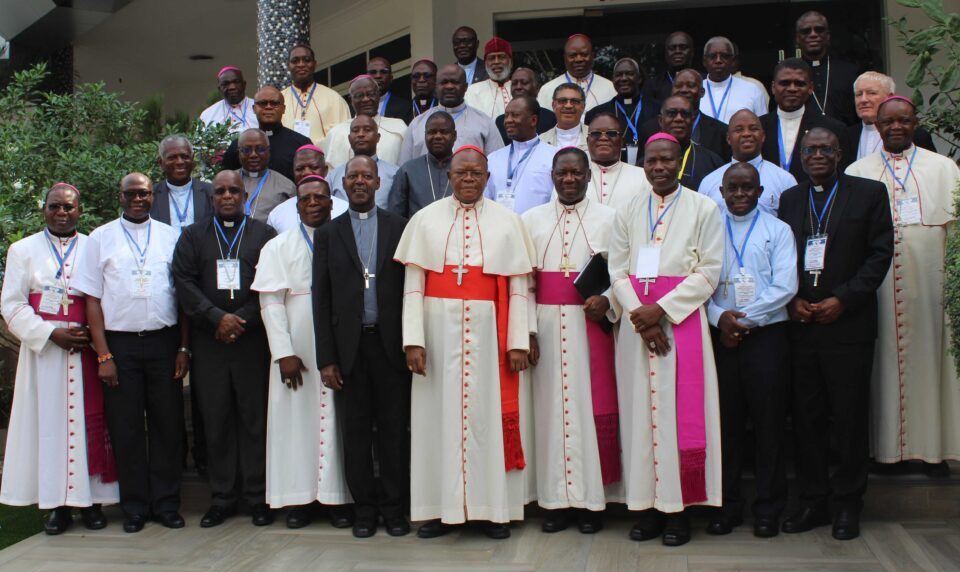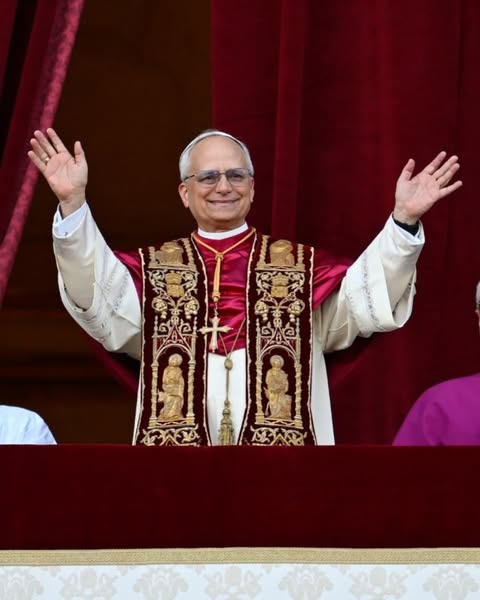- Contact us on - Contactez-nous sur - Contacte-nos em
- +233-30-277-8867/8
- +233-30-277-2548
- secam@secam.org
REPORT OF SECAM JUSTICE PEACE AND DEVELOPMENT COMMISSION (JPDC) 17TH SECAM PLENARY ASSEMBLY 2016 LUANDA, ANGOLA
Introduction
The Justice, Peace and Development Commission (JPDC) is one of the key arms of the Bishops of Africa to respond to the challenges that the continent is facing, with particular reference to issues of Governance, Justice, Peace and Development. The Commission is in a process to enable local Churches, their national and the regional structures to respond to political and socio-economic developments with regard to their consequences on poverty processes, justice and reconciliation. Some national structures Churches in Africa are starting to represent the needs of the poor vis-à-vis the relevant political institutions as regards to regional and international processes. The Commission is in a process of helping the local Churches to dialogue with their governments and other societal forces.
The 16th SECAM Plenary Assembly held in Kinshasa, DRC in July 2013 came up with very important resolutions and recommendations for SECAM and its Commissions. The following resolutions and recommendations were fulfilled by JPDC through various activities and programmes:
1. Consider the two Post-Synod Apostolic Exhortations “Ecclesia in Africa” and “Africae munus” as essential guidelines for the commitment of the Church-Family of God in our continent.
-
Several engagements have been done to follow up to the recommendations of the Post-Synodal Apostolic Exhortation: Africae Munus and Ecclesia in Africa. Meetings have been held with various groups such as all Secretaries both national and regional.
2. Speak loudly and to clearly pose significant acts so that the Church-Family of God may truly be at the service of reconciliation, justice and peace throughout African countries
-
The JPDC has initiated a very successful Solidarity visit of SECAM to Burundi in collaboration with AMECEA and SACBC from 08 to 12 June 2016.
-
Facilitating and holding of dialogue meetings on reconciliation and making follow ups through position papers on Pan African Campaigns on reconciliation.
-
A project proposal was drawn to work for Restorative Justice through the Prison Pastoral Care Apostolate.
3. Urge all Christians’ leaders at all levels not to yield to the temptation to monopolise power and to accumulate wealth, but to have a sound relation to power and money as means of struggle for justice, protection of the environment and development, in a renewed awareness and converted heart.
-
Ahead of the EU-Africa Summit, held in Brussels, BELGIUM from 2 to 4 April 2014, the Commission presented, to the EU and to all diplomatic missions from Africa and the European countries which are accredited to the EU, a position paper titled: Governance, the Common Good and Democratic Transitions in Africa: “Investing in peace and the role of EU in supporting peace in Africa.” The paper highlighted the Church’s contribution to the promotion of good governance and democratic transitions in Africa and how the European Union (EU) could support African capacities to manage security on the continent.
-
Position papers have been presented to AU with regards to Financing for Development in Africa (FFD3) held in Ethiopia in 2015.
-
A statement was presented by the Bishops during a side event hosted by SECAM and CAFOD at the FFD3.
-
Through Catholic Parliamentarians’ Liaison Offices (CPLO) the Commission has been able to reinforce the Church’s visibility and her voice in decision-making circles, by initiating in the regions a dialogue and consultation framework with the political world. Debate on public policies, to facilitate and promote peaceful transitions, democracy and good governance. Invite African leaders to avoid manipulation of the fundamental law in order to perpetuate their political mandate.
-
The experience acquired so far in these functional offices has inspired the project to support and facilitate the establishment of Catholic Parliamentary Liaison Offices (CPLO) in the following French speaking Episcopal Conferences: Burkina Faso, Togo, Mali, Congo Brazzaville, Gabon and Democratic Republic of Congo. Thus the project has coordinated the first Francophone Advocacy Training for the CPLO in collaboration with the Office of the CPLO of the Southern Africa Catholic Bishops Conferences (SACBC) in Cape Town in June 2015.
-
The Commission has started a process to establish an Ecclesial Network for the Congo Basin Forest (REBAC). It is a grouping in particular of neighboring countries of the Equatorial Forest i.e. the Congo Basin Forest for transparent and responsible management for this common legacy which is meant for the entire humanity.
-
Also networking with other organisations such as REPAM (CELAM) and commitment to work together from now onwards. This was expressed in a meeting held in Madrid, Spain in April 2016 between REBAC (SECAM) and REPAM (CELAM).
-
The Commission has tackled the role of governments in land grabbing, through an International Conference held in Nairobi, Kenya in 2015 and a follow up meetings on Lusophone countries held in Lisbon, Portugal with (CIDSE FAST Working Group) and in Beira, Mozambique in June 2016.
4. Commit to establish “Justice and Peace” committees in all dioceses where they do not exist yet and strengthen where they exist, by ensuring the training of their leaders.
-
The Commission has been able to encourage a direct engagement in the understanding of the complex systems of injustices through the formation of justice and peace commissions (JPCs) in many Episcopal Conferences in Africa, which has been a positive step to the reconciliation processes.
-
A close working relation has been established with the Regional Episcopal Conferences to make follow ups on how the local Church and its structures have been able to respond to political and socio-economic developments with regard to consequences on poverty, justice and reconciliation.
-
JPDC have continued to revitalise and coordinate the contribution of the working groups in order to assist the Bishops in taking socio-political decisions i.e. Migration, HIV and AIDS, CPLO and Governance Working Groups.
5. Commit to celebrate a year of reconciliation at continental level to respond to the appeal of the Pope in “Africae munus” (cf. A.M No. 157).
-
Through the themes and strategies proposed by SECAM Justice and Peace Congress held in Namibia in 2015, the Commission managed to join together the people of Africa in carry out a Lenten Campaign in 2016 in celebration of the Year of Reconciliation in Africa with hope and faith.
-
The Commission has been vigilant and engaging in public affairs, to know how to courageously alert the International Community through a wake-up call for them to work for governance. SECAM has recommended the celebration of the Year of Reconciliation in Africa from 29 July 2015 to 29 July 2016.
6. Incorporate SECAM pastoral strategic plan at all levels of the Church to better ensure the implementation of “Africae munus” so that the Church-Family of God in Africa may effectively be involved in the service of reconciliation, justice and peace.
-
The Commission has been actively involved in the implementation or domestication of the SECAM Strategic Plan by being involved in inclusive activities of SECAM, such as the Secretaries General meetings, planning and hosting of SECAM meetings, writing and forwarding project proposals to partners such as Missio, Propaganda Fide, USCCB etc.
-
The Commission has developed an Advocacy Strategic Plan to guide all its activities. It has already been approved by the SECAM Standing Committee.
7. Promote ecumenical dialogue and fraternal relations with the new religious movements with an open mind and witness
-
The Commission co-organised, planned and facilitated the African Faith Leaders Summit on Post-2015, which was held in Uganda. Its aim was to review the African Faith Leaders position and strategy papers on sustainable development and the Post 2015 Agenda and was part of an initiative to build the capacity of African faith communities on sustainable development and the Post 2015 Goals.
-
Inter-religious dialogue coupled with good governance practices by our African leaders constitutes a genuine engine for the integral development of our countries.
8. To responsibly work for the development of the continent and to resolutely address the structures that cause poverty
-
The JPDC is in the process of implementing the recommendations of the Summit on Land Grabbing in Africa, which was held in Kenya in 2015. It’s a process of denouncing the practices of land expropriation of which peasants or farmers are victims in Africa (Land Grabs).
-
The Commission has advocated for fair distribution of income from natural resources through transparent, responsible management and exploitation through Development Agendas i.e. Agenda 2063 and SDGs.
-
A position paper on Development Agendas has been developed by the Commission.
-
Following the signing of the SECAM-AU MoU, a SECAM- Liaison Office has been established by the Commission in Addis Ababa, Ethiopia and development of an Advocacy Strategy to help it carry out its mandate. The strategy will strengthen capacity at continental, regional and national level in evidence-based advocacy. This will be done through training and information sharing, but much is likely to be done in practice through well-thought joint advocacy work.
9. Guarantee the rights of children to life, family, food, health, education and peace so that their future and that of their society are insured
-
The Commission has responded to the health crisis in Africa, which includes the Ebola virus, the HIV and AIDS pandemic and other diseases such as Malaria. The Commission has intensified its significant role by promoting social cohesion and national health policies through the implementation of the SECAM Pastoral Training Manual on HIV and AIDS.
-
Episcopal Conferences are being encouraged to fully participate in Country Coordinating Mechanisms (CCMs) in order to access funding from Global Fund and influence HIV and AIDS policies at national level.
-
The Commission has held two training workshops on the Manual i.e. Anglophones and Francophones. The Lusophone training is being planned for.
-
The Commission has been focusing on migration through a theology of mobility i.e. viewing the movement of people as a spiritual pilgrimage and as a significant impulse towards the unification of many cultures and as universal fraternity. Migration is full of diversity, universality and happiness which lead to development.
-
The Commission has also recommended for programmes to be done with regards to Restorative Justice in Africa.
Conclusion
Most of the programmes and activities done by the Commission were implemented at the Regional and National Conference levels. This has helped it to fulfill its role of animation, facilitation and coordination as well as foster collaboration among Regional and National offices/commissions in the area of justice, peace, development and reconciliation. From the Bishops assembled here the JPDC would want to kindly ask for your continual support both spiritually and physically. May you kindly encourage your various Commissions and structures to respond positively and quickly to requests from SECAM. Help us identify need areas or critical areas which need to be addressed and redressed by our programmes and mobilise local support towards our programmes. Lastly but not least my Lord Bishops allow institutions of higher learning, such as universities, to propose critical areas for research to SECAM.




